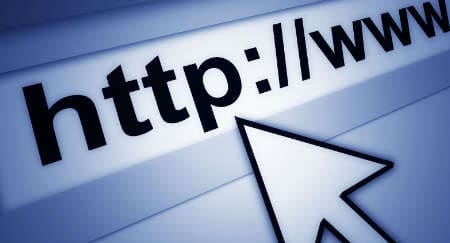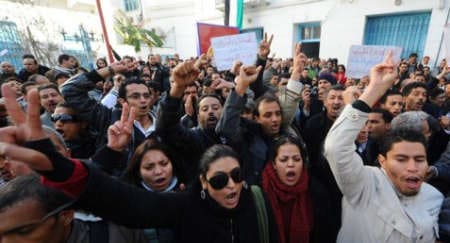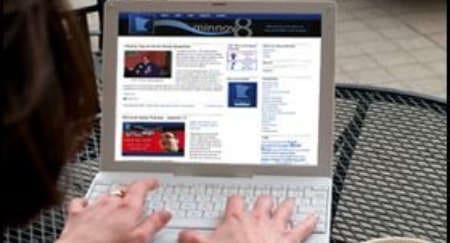Hillary Clinton's senior advisor for innovation outlines how social media can affect the way politics is done. As well as opening up new conversations, it also reflects the new profile and dynamics of voters - and it is up to politicians to respond.
When Secretary of State Hillary Clinton took over leadership of the State Department in January of 2009, there were 4.1 billion mobile phones on planet earth. Today, there are more than 5 billion, with 75% of that growth occurring in the developing world. Blended into this pool of users are 2 billion Internet connections.
Voice and data enabled handsets are proving to be powerful tools for economic growth and social mobility. Demand is very high and accelerating. In turn, the political economy of these technological changes is disruptive to existing social, economic and security conditions.
This convergence of communications, infrastructure and demographic changes is unique in history
Why? The emergence of the Internet as a transnational infrastructure is more than a generational change in the technology of mass media. It is a triple paradigm shift converging on a single network.

The emergence of the Internet as a transnational infrastructure is more than a generational change in the technology of mass media
- It represents the shift of mass media from print to broadcast to digital.
- But it also represents a shift in communications from post to telegraph to telephone to packets.
- And finally it represents a shift in our economic infrastructure from seaways to rail to highways and now, increasingly, the Internet.
This convergence is unique in history and profoundly transformative.
Add to this mix demographic changes that feature major increases in international migration and a youth population that makes up more than half of the developing world. This mix is altering socio-economic and political conditions around the globe.
We can see its impact in the recession resistant ICT marketplaces from Jakarta to Nairobi to San Francisco.
We can see its potential in the collaborative production around global research in climate change and human genetics.
And we can see its power in the dissent movements in the Middle East.
To a significant degree, power is being devolving from the nation state and large institutions to smaller institutions and individuals.
We are only beginning to understand the implications of these shifts.
These disruptions do not require a technological response. They require a foreign policy response.
The Che Guevara of the 21st Century is the network
Social media and political dissent movements

Nothing happening in the Middle East is a revolution caused by technology - but it played an important role
To be clear, nothing happening in the Middle East today is a revolution caused by technology.
Youth unemployment, disaffection with ruling families, high food prices, and other factors caused the dissent movements to emerge.
But technology did play an important role. It is too early to make final assessments, but we can draw several conclusions from recent events.
- First, technology accelerated political change by networking together like-minded groups of people and permitted real-time coordination in movement building. It accelerated movement making from a years-long process into one that took just weeks or months.
- Second, social media made weak ties stronger, bringing people of diverse interest and background who connected online together in offline protest actions.
- Third, it distributed leadership across a wide variety of actors. The Che Guevara of the 21st Century is the network. It does not take a single, individual figure to organise and inspire the masses.
- Fourth, we can see that the social media platforms that facilitated organising also fed the news cycles of mainstream media that brought the story of change to the region and the rest of the world. What happened when young people in Tahrir square hoisted posters bearing the names of their Twitter hashtags? Pan-Arab satellite television captured those images, broadcast them to the wider world, and drew attention to authentic voices on the streets.
The debate over whether these technologies are better suited to dictators or democrats is over. That is not to say that dictators do not use them effectively. They do.
The power of decentralised information networks to facilitate the free flow of information and enable dissent movements is clear. Not only do connection technologies empower people to share ideas amongst themselves and to discover information previously unavailable or prohibited, they also open a window on what life is like around the world.
The hand-wringing debate over whether these technologies are better suited to dictators or democrats is over. That is not to say that dictators do not use them effectively. They do. We are clear-eyed about the dangers of repression enhanced by sophisticated surveillance tools.
But on the whole, the clear evidence of recent history shows that the network technologies infusing the nervous system of modern political, economic, and social life tend to resist centralized control and empower decentralised movements of ideas. The question then becomes how to harness these forces to serve the interests of the international community in promoting our common security, economic prosperity, and the realisation of political aspirations.
Technology by itself is agnostic. It simply amplifies and extends the existing sociology in a community. If the community aspires to democracy, it facilitates that. If the community aspires to something else, it will facilitate that. And if it succeeds in toppling a power structure, there is no guarantee it will succeed in standing up a new one.
The policy of the US government to promote access and adoption of connection technologies as tools of human empowerment and progress is therefore not a bet on technology. It is a bet on the progressive aspirations of people enabled by technology.
Making diplomacy personal
Social media offers government a powerful tool to engage directly with people in a more local and organic fashion. Diplomacy is normally conducted in formal interactions between sovereign nation states.
In the 20th century, governments attempted to conduct diplomacy with foreign publics by broadcasting messages over their borders.
In the 21st century, the critical innovation in diplomacy is people to people.
Using connection technologies and social media networks, the people of all nations can interact with one another on the pressing issues of our time.
They can share solutions to common problems, borrow and modify new ideas, invest in transnational social and commercial entrepreneurship, and entertain each other.
The results of these interactions are bearing fruit.
- International NGOs (non-governmental organisations) that work to combat the spread of HIV use text messages to send out instructions on how to use antiviral medication.
- A mobile banking programme developed in Kenya is now being studied for replication around the world.
- And a generation of young people have been inspired by the events fostered on social media in Tunisia and Egypt to realise their own aspirations for more open societies.
By integrating social media into our approach to statecraft, Secretary Clinton is building relationships and creating connections with stakeholders across as many different sectors as possible in as many languages as possible.
Technology won’t answer all our foreign policy challenges, but it will enable us to ask different questions to different people
In sum, we are placing our statecraft onto the global network. Through the network, we are speaking to new communities and above all listening to them. We recognise that we have two ears and only one mouth. Technology by itself won’t give us answers to all of our foreign policy challenges, but it will enable us to start asking different kinds of questions to different kinds of people.
By virtue of that feature alone, the Internet is a game-changer for statecraft.


